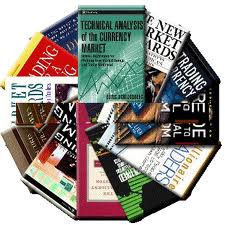Charting the Major Forex Pairs
Trading in the foreign exchange currency markets has recently exceeded $2 trillion a day and this figure is expected to double within the next five years. The reason for this astonishing surge in trading popularity is quite simple: no commissions, low transaction costs, easy access to online currency markets, no middlemen, no fixed lot order sizes, high liquidity, low margin with high leverage, and limited regulations. These factors have already attracted the attention of both neophyte traders and veteran speculators in other financial markets.
In this volume, special focus is given to the five most frequently traded Forex currency pairs: the U.S. Dollar, the Euro currency, the British Pound, the Swiss Franc and the Japanese Yen. It is estimated that trading among these five pairs comprises 78 percent of all orders in the spot currency markets.
HOW THIS BOOK IS ORGANIZED
There are eight major divisions in this book:
Part I: Getting Started
In this section, we expose little known characteristics unique to spot currency data and define the mathematical and statistical tools that facilitate the visual approach to technical analysis.
Part II: Euro Currency
It is only fitting to begin our analysis of major currency pairs with the most heavily traded pair: the EURUSD. A comprehensive history and a detailed account of the Euro?s modern evolution are included here. More importantly we supply numerous charts depicting the status of the Euro currency in today?s marketplace.
Part III: British Pound
The old adage ?The sun never sets on the British Empire? applies to its official currency too. This king of currencies has the highest parity ratio of all the major currencies (1 Pound = 1.70 U.S. Dollars) and is subjected to detailed analysis in this section.
Part IV: Swiss Franc
The Swiss Franc has always held a position of respect and honor in the financial community. Switzerland?s political neutrality and banking policies have contributed to its almost mystical attraction. In this section, we reveal its innermost secrets and mathematical properties.
Part V: Japanese Yen
To characterize the Japanese Yen with only one word, it would have to be ?resilient.? Its decline and recovery history is very impressive. Of all the major currencies, it has the lowest parity ratio (110 Yen = 1 U.S. Dollar). The Yen is heavily influenced by Japanese banking policies and national intervention, the technical results of which are thoroughly examined in this section.
Part VI: Cross Rates
In this section, we examine the six non-USD cross rates: EURGBP, EURCHF, EURJPY, GBPCHF, GBPJPY, and CHFJPY which, fortunately, no longer carry outlandish transaction costs, making them now available to small-cap investors.
Part VII: Comparative Studies
Here we analyze spot currency prices with comparable futures prices and precious metals. We also examine a global synthetic currency called the Mundo that we concocted in order to describe the interrelationships between price fluctuations within the five major currencies.
